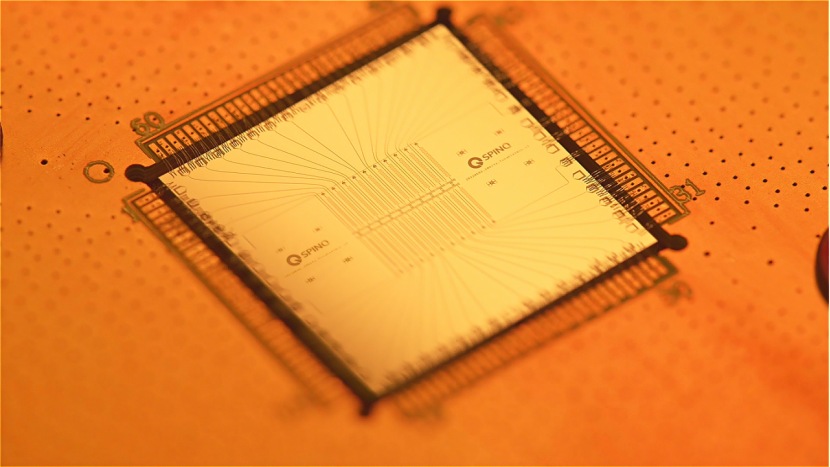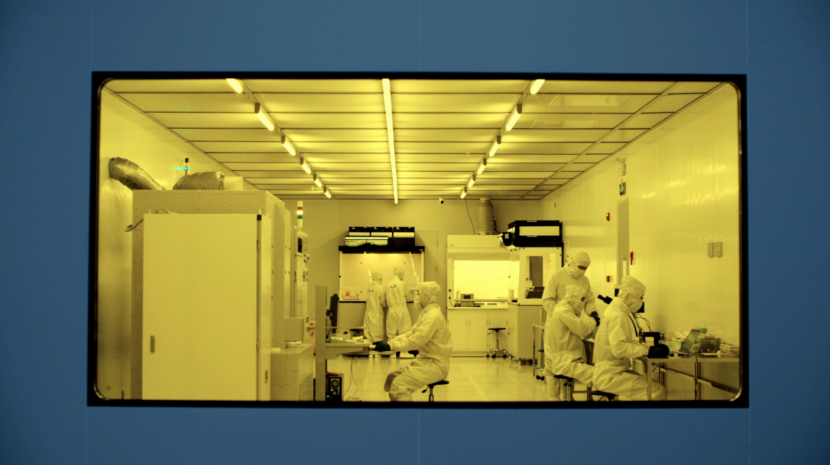Superconducting Quantum Chip "SPINQ QPU": Standardized, High-Performance, and Scalable
2023.07.03 · Press Release
Quantum computing, with its potential for parallel computing capabilities that far exceed those of classical computing, is believed to bring exponential growth in computational power. It aims to solve complex problems that are currently limited by computational power and is considered an important direction for the leapfrog development of computational capabilities in the future.
Among the various hardware systems for quantum computing, superconducting quantum technology stands out as one of the most promising due to its stability, scalability of quantum qubits, and the ability to leverage existing mature semiconductor processing technology. It has become a focal point for many companies and research institutions.
Challenges in Superconducting Quantum Technology and Standardized Chip Production
In the superconducting quantum technology system, the Quantum Processing Unit (QPU) is the "heart" of the superconducting quantum computer. Unlike the CPU of a classical computer, the SPINQ QPU is a quantum chip based on superconducting materials, using superconducting quantum qubits as the basic computational unit. It offers advantages such as long coherence time, fast operation speed, and high fidelity.

However, standardized production of superconducting quantum chips is a rare capability worldwide. It implies a uniform and repeatable design for mass production, which also faces several challenges:
1. Design Complexity: Quantum chips are more complex to design than traditional computer chips. Quantum qubits are susceptible to environmental influences that generate quantum noise, affecting the operational accuracy of quantum logic gates and complicating the design and realization of quantum chips.
2. Material and Process Limitations: Superconducting quantum chips require high-quality superconducting materials like aluminum, copper, and niobium. The selection, preparation, and processing of these materials are crucial for chip performance. Additionally, the fabrication requires sophisticated micro-nano machining processes and high-precision control techniques for complex qubit structures and circuit connections.
3. Qubit Consistency and Stability: Ensuring the consistency and stability of superconducting quantum qubits, which is key to reliable quantum computing, is a significant challenge in mass production, requiring precise control and correction techniques.
4. Measurement and Control Limitations: Achieving reliable measurement and control technology to improve chip performance and reliability is a considerable technical challenge in standardized production.
Integration of the Full Chain to Ensure Standardized Chip Production
In April 2023, SpinQ introduced the superconducting quantum chip - SPINQ QPU, one of the few standardized and mass-produced superconducting quantum chips globally.
To meet this standard, SpinQ's team developed a standardized design and manufacturing process, selected premium materials, controlled production stability, and utilized high-precision quantum measurement and control, ensuring product stability and consistency for mass production.
Superconducting quantum systems, with their flexible design, can define qubit performance and, combined with the current two-dimensional mesh array, easily scale to hundreds of qubits. They are highly compatible with semiconductor technology, indicating an industrial basis for mass production.
 SpinQ's Superconducting QPU Fab
SpinQ's Superconducting QPU Fab
Performance and Application of SPINQ QPU
The decoherence time, T1, of SPINQ QPU reaches 10-100 microseconds, an industry-leading figure that enhances error rate reduction and qubit interaction reliability. Strategies to achieve this include optimizing material selection, improving qubit design, and controlling the fabrication process for material purity and homogeneity.
Gate fidelity exceeds 99%, requiring a long T1 and precise calibration through superconducting quantum qubit measurement processes. Operational in a 10 mK environment and with noise-isolation techniques, SPINQ QPU achieves high computational accuracy.
In terms of speed, two-qubit gate operations are performed in tens of nanoseconds, reflecting the engineers' optimization of chip design for efficiency and speed.
Broad Application Scenarios Driving Quantum Computing Industrialization
The "SPINQ QPU" comes in 2-qubit, 10-qubit, and 20-qubit models for various applications. The 2-qubit model is ideal for educational and research purposes, helping students understand quantum computing principles and promoting industry development.
For research institutes, the "SPINQ QPU" aids in basic research, technology development, and prototype validation, solving complex problems and verifying new quantum computing methods.
Higher qubit models run complex algorithms for tasks in quantum chemistry, simulation, and cryptography, with applications in material science, drug development, finance, and more.
As quantum qubit count and performance grow, we expect broader applications in supply chain optimization, complex system planning, and AI training, supporting the development and commercialization of quantum computing.
Contact Us

